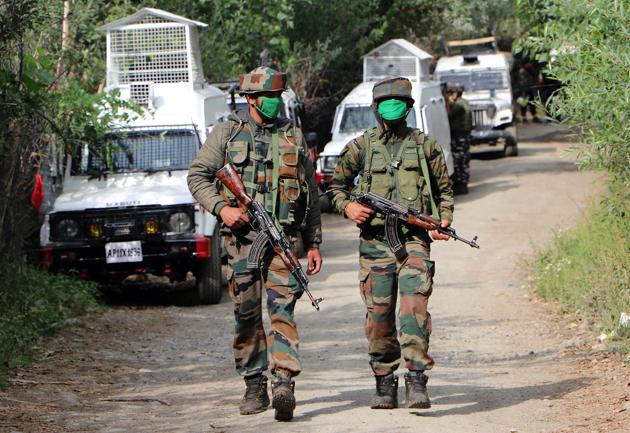Shopian deaths: Ensure justice, break the cycle of violence
Lieutenant -Governor Manoj Sinha has been attempting several outreach programmes. He also visited the hallowed Hazrat Bal mosque in Srinagar but the people are not going to respond to such optics.
The killing of three labourers in Shopian on July 18 is a litmus test for New Delhi and the newly-created Union Territory (UT) of Jammu and Kashmir.

The Indian Army has conceded that the Armed Forces Special Protection Act (AFSPA) — meant to provide protection to its men operating in conflict areas — was “exceeded”. An initial enquiry conducted by it has established that three youth from Rajouri, who had travelled for work to South Kashmir’s Shopian, were likely killed in a fake encounter. Their DNA samples have matched with their family members, who had written to the UT’s Lieutenant -Governor (L-G), Manoj Sinha, seeking justice. Their bodies have now been exhumed and taken home for burial in compliance with legal procedures; this speaks further of the Army’s transgression.
The fake encounter is a test case for the new L-G who is seeking to reach out to an angry population, stunned by the sudden and overnight hollowing out of Article 370 that gave the former state its special status.
Sinha needs to ensure that the disciplinary proceedings, initiated by the Army after the initial enquiry established excesses under AFSPA, are taken to their logical conclusion. The post-mortem report of the young men reveals that their deaths were caused by “multiple firearm injuries causing hemorrhagic shock, leading to cardio-respiratory arrest and death”. There are too many instances of the Army shielding its own men despite their having been proved guilty. In the past, ordinary Kashmiris have been passed off as foreign terrorists after they have been killed and their bodies burnt.
In 2010, Kashmiris took to the streets after the Army killed three civilians in a fake encounter and passed them off as infiltrating terrorists. The violation was proved beyond a doubt. Unsuspecting civilians had been lured to Machil, a forward sector along the Line of Control, and killed in cold blood. Despite an Army court martial pronouncing five of its men guilty and sentencing them for life, the Armed Forces Tribunal suspended the sentence, arguing that civilians ought not to have been in a forward location, wearing “Pathan suits”. In 2016 too, the civilian toll crossed 100 after stone pelters — angry with the killing of militant commander Burhan Wani — took to the streets. Kashmir gave vent to deep anger and betrayal — not only because Wani was eliminated — but because the trust deficit between the Valley and Delhi had eroded over the years.
The pellet gun became the symbol of oppression. It blinded, maimed and killed. The government, however, dismissed a report released by the office of the United Nations High Commissioner for Human Rights in July last year. The report called out the basic tenets of injustice: “There is no information about any new investigation into excessive use of force leading to casualties. There is no information on the status of the five investigations launched into extrajudicial executions in 2016… No prosecutions have been reported.”
The government — both at the Centre and in the UT — needs to pursue justice for the Rajouri families who had sent their sons in search of sustenance. The three had rented a room, not far from an Army camp, but their bullet-ridden bodies were found in an apple orchard, about 12 km away.
These brazen killings must not go unpunished, not only because they are a violation of human rights; but also because, in Kashmir, they feed into the cycle of violence. Sinha has been attempting several outreach programmes. He also visited the hallowed Hazrat Bal mosque in Srinagar but the people are not going to respond to such optics.
Several standard operating procedures appear to have been given a miss on July 18 when the three young men were killed. The Army went into an operation alone, instead of taking the local police along. The three were not given a chance to surrender as is common practice during most encounters. All of this will, of course, be examined in the course of the disciplinary proceedings. The clear message, at the end of the day, must be that the lives of the residents of Jammu and Kashmir matter. This is imperative.
The views expressed are personal



